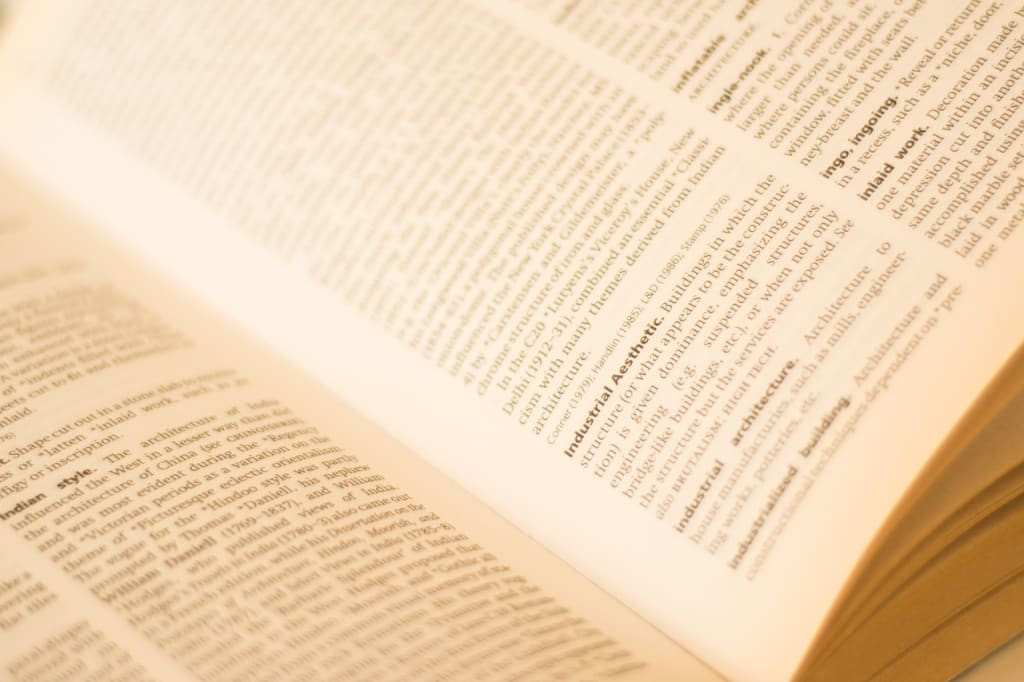
Now that we're well underway into the 700s, I would not only like to say thank you to my readers, friends and online pen-pals, but I'd also like to say thank you to people who have, in real life, had to spend more than five minutes with me. I have realised that I am a pretty one-sided human being from being in lockdown for so long that I'm pretty much stuck with myself. However, it has given me time to improve upon my reading goals that I think I've met so far. Here are the ones I have completed:
1) to read as many genres as I can and not stick to just one constantly
2) to be more social with my reading by joining a read-along, book club where I am actually active in discussion
3) to share more recommendations and take recommendations to and from people in order to talk about particular works more
4) to make more online friends who also read
I am doing this because of the fact I am socially pretty inept. I don't like being around people too much and often and so, I'm left pretty much to my own devices for hours, days and weeks on end. This doesn't create a feeling of loneliness but after a while, you can really lose touch with how to have a conversation with people and that is what has been happening to me. I don't talk much but when I do, I talk about books almost constantly. I've been working on being social online so that hopefully, I can one day transfer those over to the real world.
Anyways, enough of my life story, here's numbers 721 through to 740...
721. In Defence of the Republic by Cicero
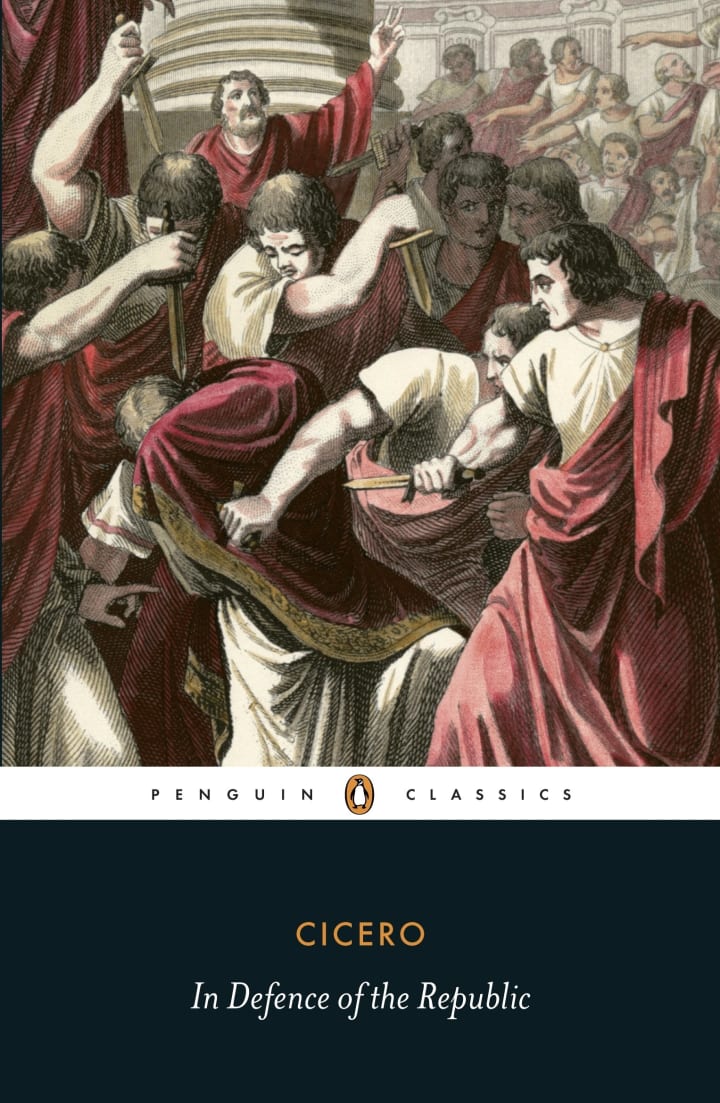
Cicero makes some great arguments about keeping the republic including the way in which that if there was not a republic, the rich would outrank the poor in ways of law, order and justice - paying off their ways, biding their time and avoiding jail. Cicero's rhetoric is often considered grand and vaults across your soul, but in this he offers a seriousness that is not really seen in any of his other works, like a prophetic warning.
722. A Day in the Country and Other Stories by Guy de Maupassant
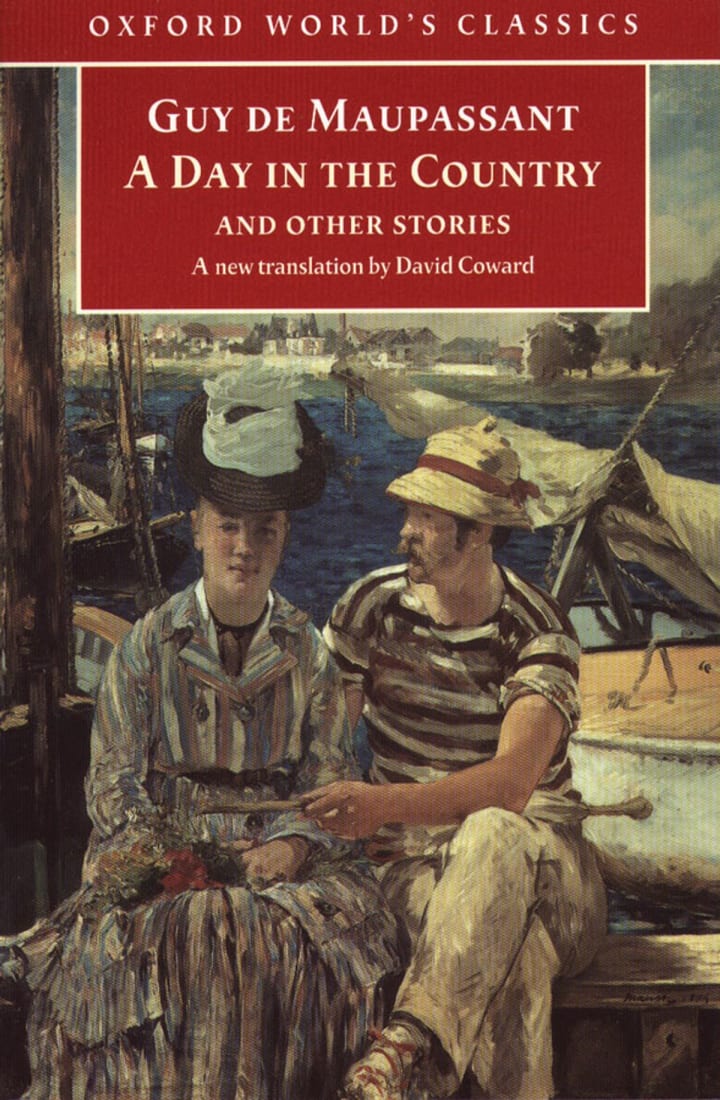
Maupassant's writings are often considered to be a part of the French Decadent Era in many ways. His passions and romances are both shocking and turbulent. But in his short stories, he expresses his understanding for human madness, depression, violent passion and yes, even existential and suicidal thoughts. It is a brilliant set of stories which proves that Maupassant is multi-faceted in his writing.
723. A Woman Killed with Kindness and Other Domestic Plays
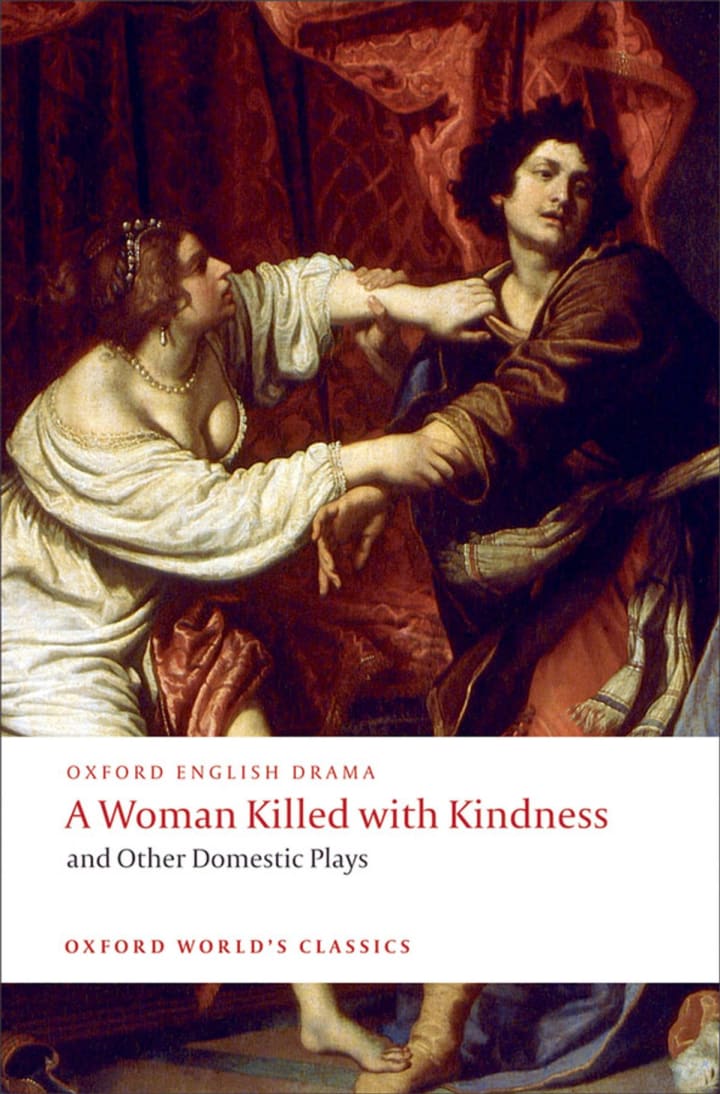
I've read a number of the plays in this anthology before and well, my favourite was always "The Witch of Edmonton". These book display the ways in which domestic twists and turns can lead to both comedy and tragedy with "The Arden of Faversham" being about a woman who has a lover and requires her husband murdered to fulfil the new relationship and be able to have her way. Unfortunately, this leads to a maddening path to tragedy. Each play in this text is a brilliant example of violently claustrophobic ideologies that intend on keeping people perfectly in place.
724. The Age of Alexander by Plutarch
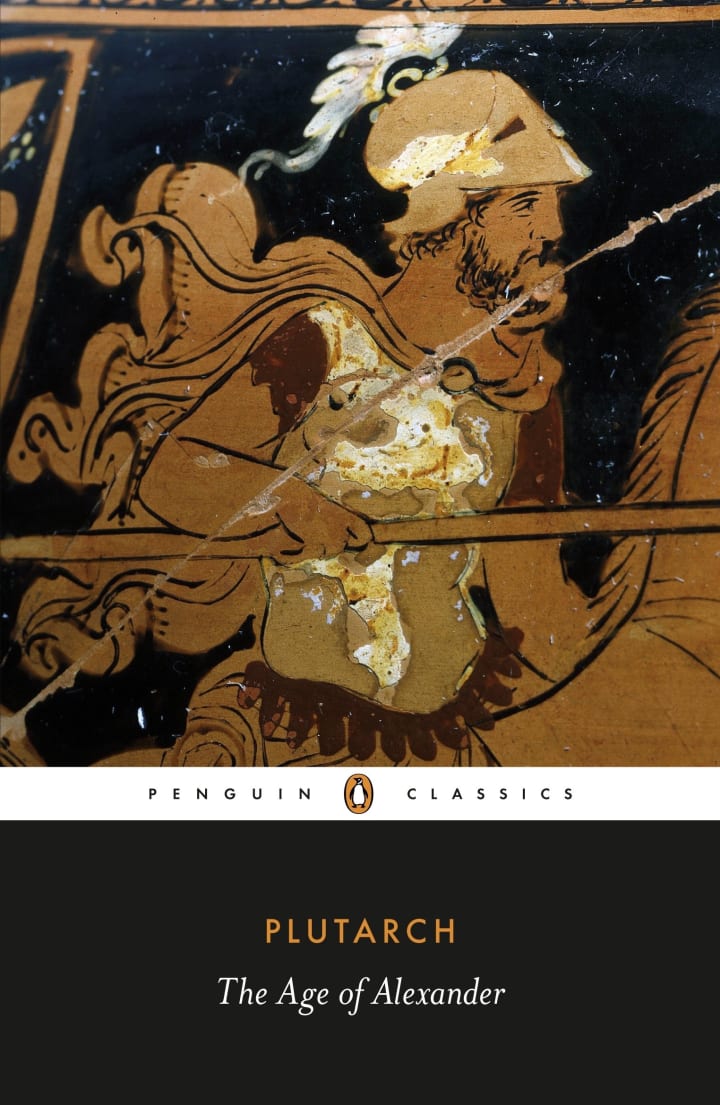
I nearly always love reading books about Alexander the Great and proving that he wasn't very great after all. When it comes to it, Plutarch has no problem expressing the way in which Alexander turned from great leader to violent and suspicious man. It is one of Plutarch's greatest recordings and each of the different ages lead us to and away from this turbulent human being.
725. The Storm by Daniel Defoe
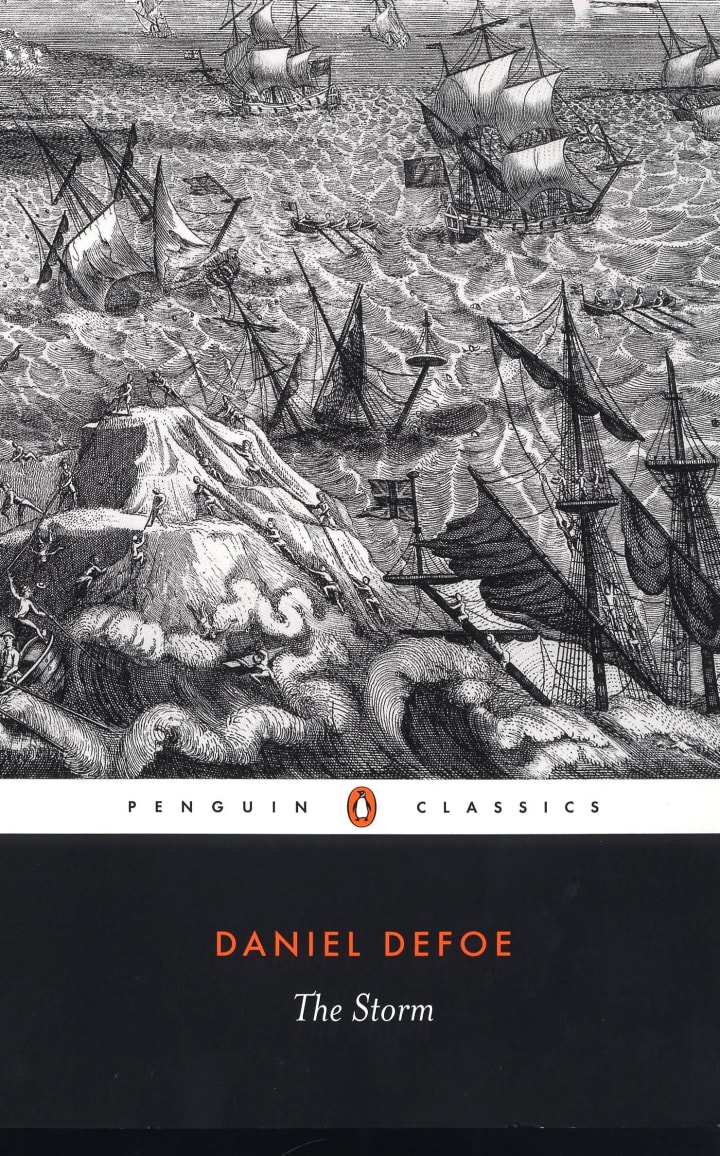
This book, about the great storm that once plagued England, became my favourite book by Daniel Defoe and I make no apologies to Robinson Crusoe for that one. All about the history of the storm and what was believed about them by ancient civilisations and such. This book was one of the perfect accompaniments to a cold night. It is a brilliant book filled with amazing descriptions and images.
726. The Last Days of Socrates by Plato
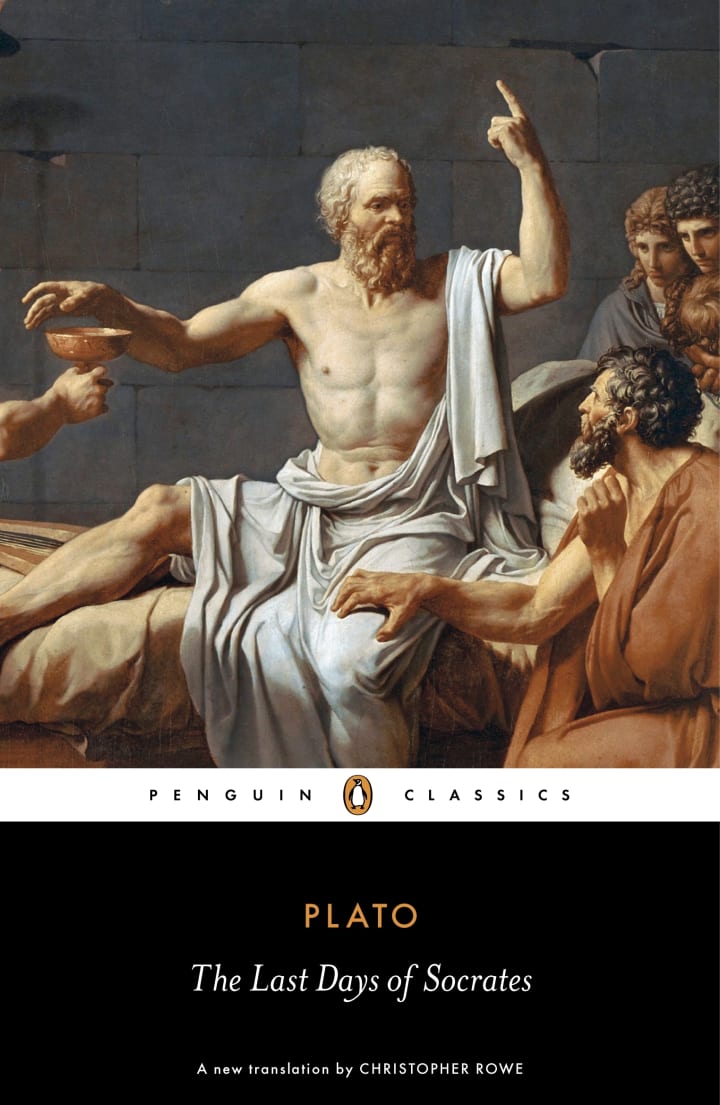
This book by Plato describes the final days before Socrates' execution and includes the amazing and philosophical "Phaedo" in which the execution is described as an event from Phaedo to his friend. It is a strange account and often contains themes of justice, knowledge and the way in which society is trying to oppress thought throughout the generations, especially in the young.
727. Rome and Italy by Livy
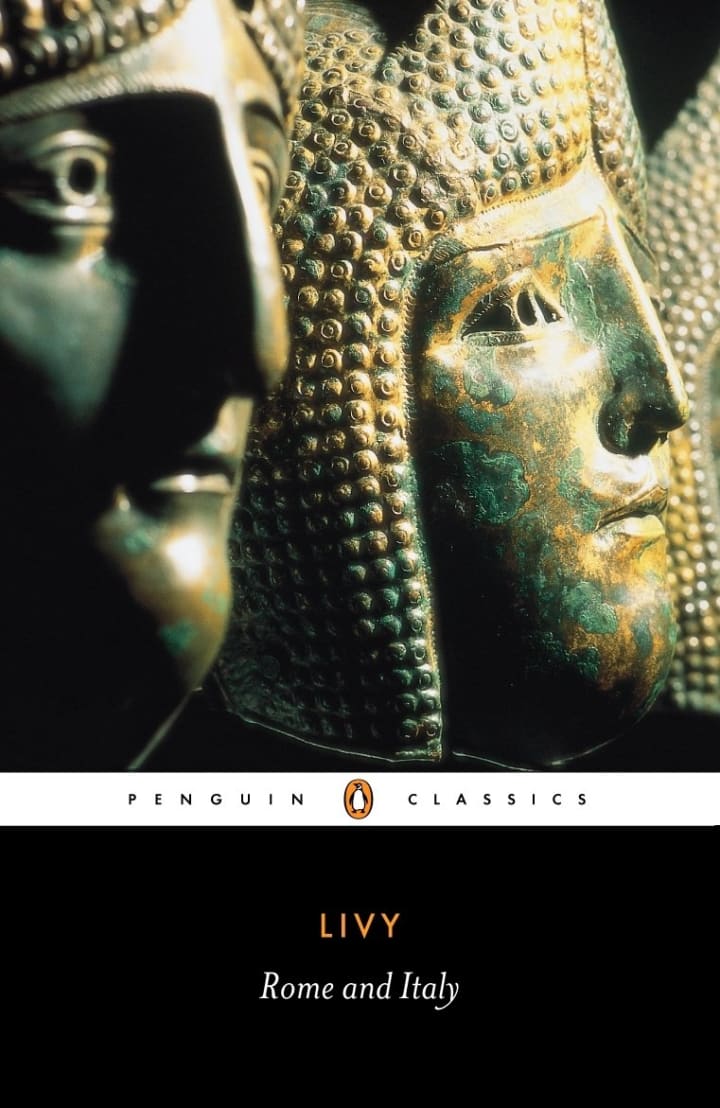
I read Livy's first five volumes long before this one and by most accounts, the first volumes were better because they went into more mythical and incredible detail about the way in which Rome was first populated. Even though I don't believe very much of any of it is really history, this book sure does know how to tell a good story. I will say though that a lot of all these names are difficult to keep up with.
728. Satyricon and the Fragments by Petronius
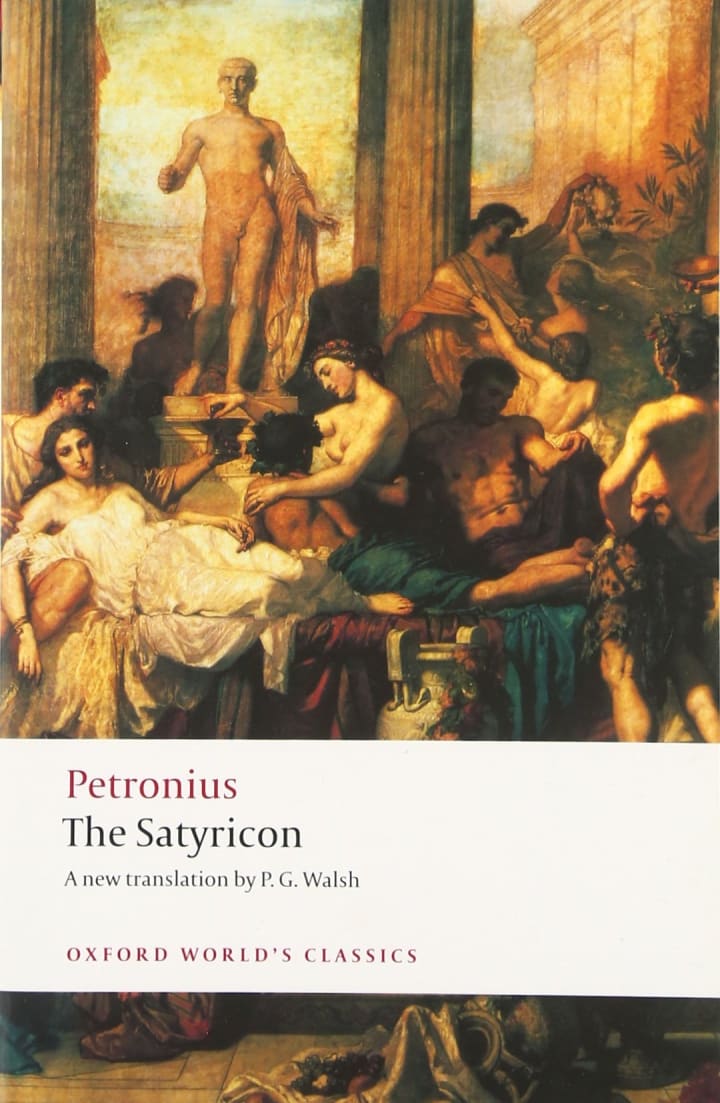
I was fumbling through my old books and things when I found this book on Satyricon by Petronius, it is a comedy in the style of a political satire and is only believed to be written by the man's name on the cover. This book was interesting because it's not really prose and it's not really poetry, it's like a rhetoric that has a number of strange allusions to the political state of the country at the time but as far as Latin Literature goes, it is absolutely brilliant.
729. Collected Poems by Stéphane Mellarmé
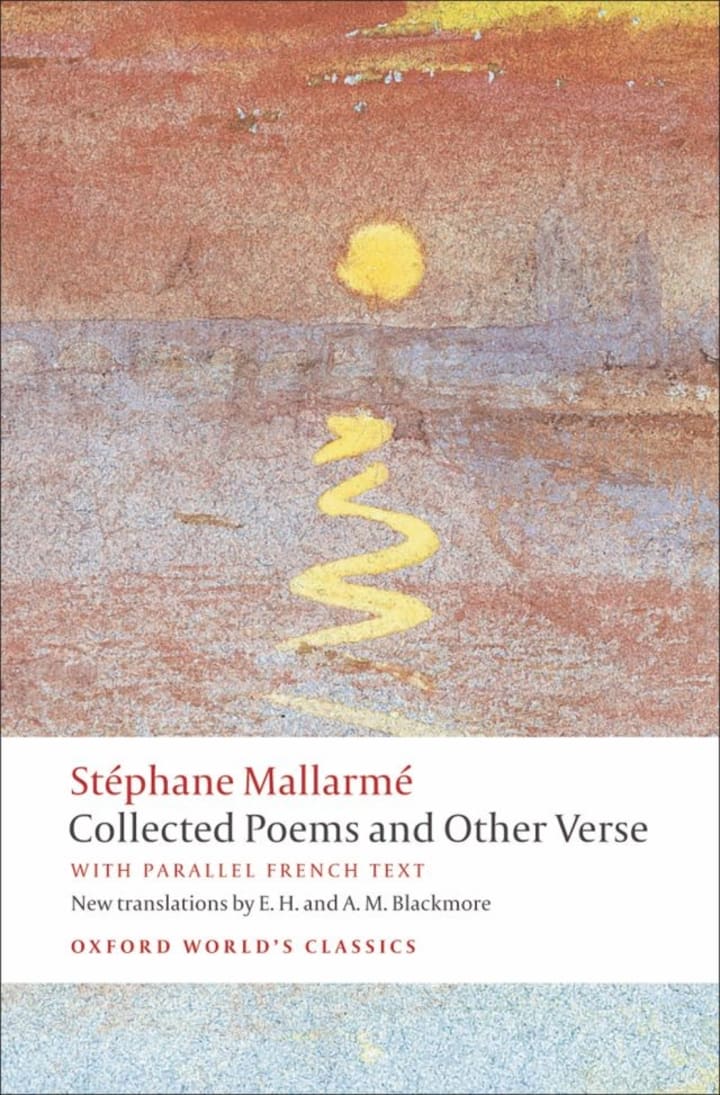
I really enjoyed reading Mellarmé's poetry because it was filled with violent imagery and passionate love. The way in which it uses the language of death and suicide without love, passion and in the form of tragedy makes a brilliant poetic style. It is a beautiful and yet melancholic poetic ideal that the writer uses to bring out the very depths of the conflicts of the human soul.
730. Where the Crawdads Sing by Delia Owens
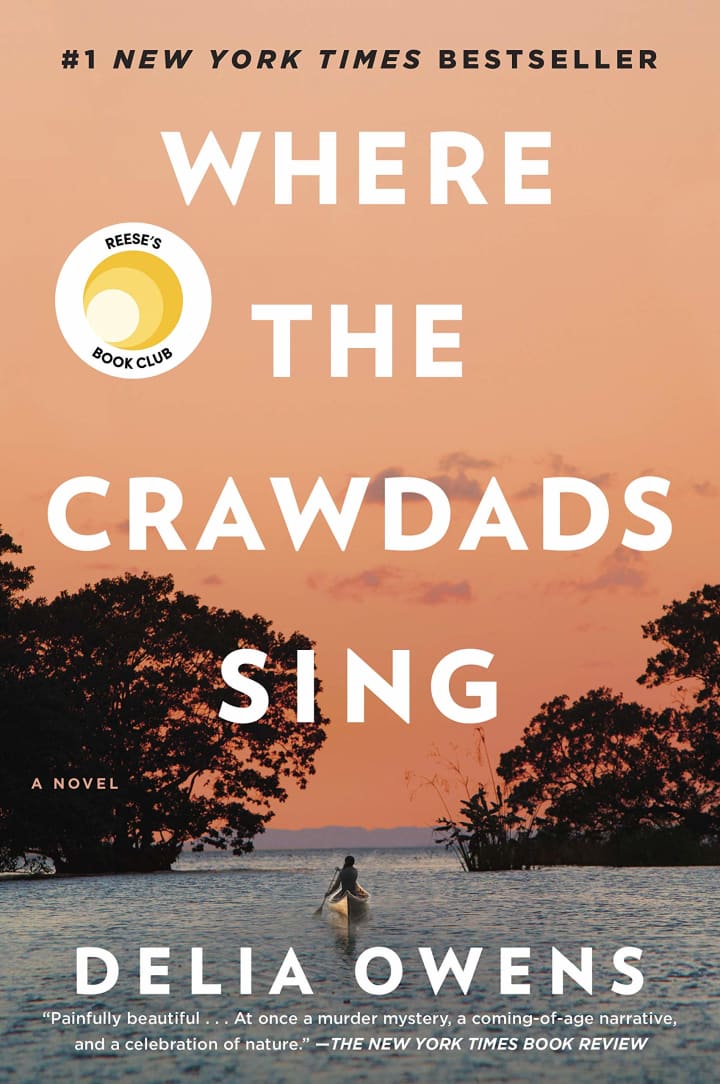
I was thinking about reading this since it came out and when I finally did read it, I wasn't too impressed. I was actually thinking about how predictable and often cliché the plot and characters were, however the writing style was perfectly alright. I'm not going to lie, I actually guessed what the ending was going to be, it ended up happening in the second half of the book and the ending was a bit of a mashed-up quick job rather than something believable. I mean, this writer clearly doesn't understand what trauma is. The book itself was thoroughly average. However, I am waiting for her to write another book because I never judge an entire writer by one book.
731. Rubyfruit Jungle by Rita Mae Brown
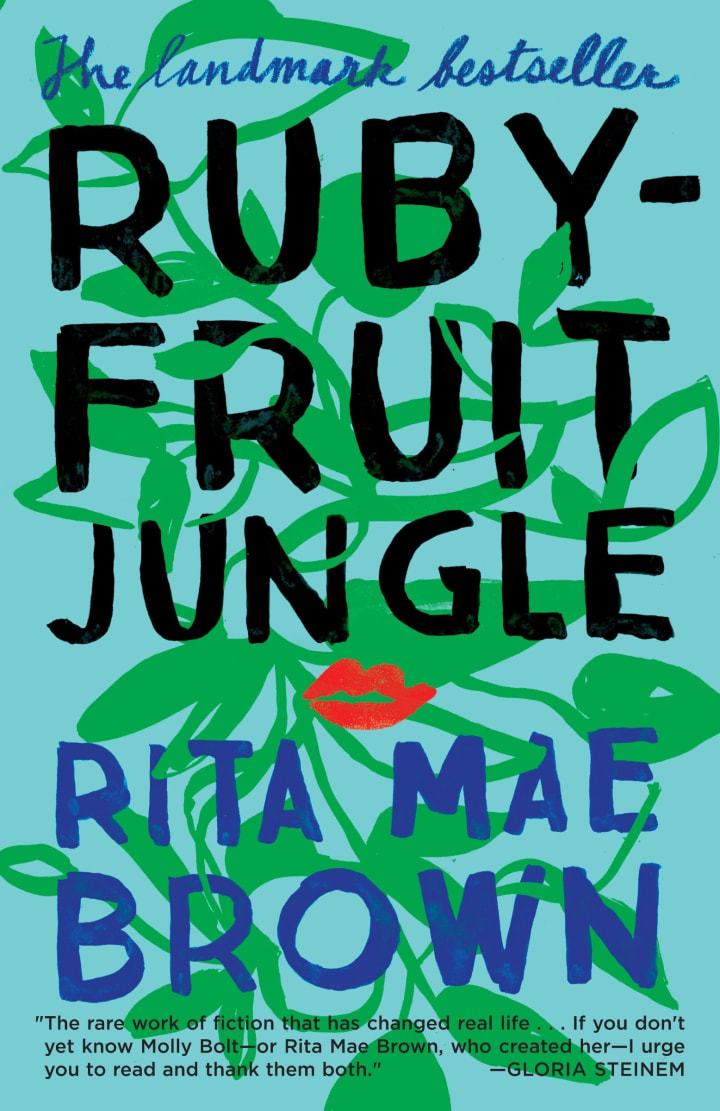
This book was perfectly awful from the beginning, but as it grew into something, the middle turned out to be great and the ending was pretty good to. From the beginning there is clear character development but the speech and descriptions are often cheesy and cringe-worthy. But the middle develops on the personality traits stationed at the beginning of the story and makes for excellent reading material. I found the ending was far better written than any other part of the book.
732. The Count of Monte Cristo by Alexander Dumas
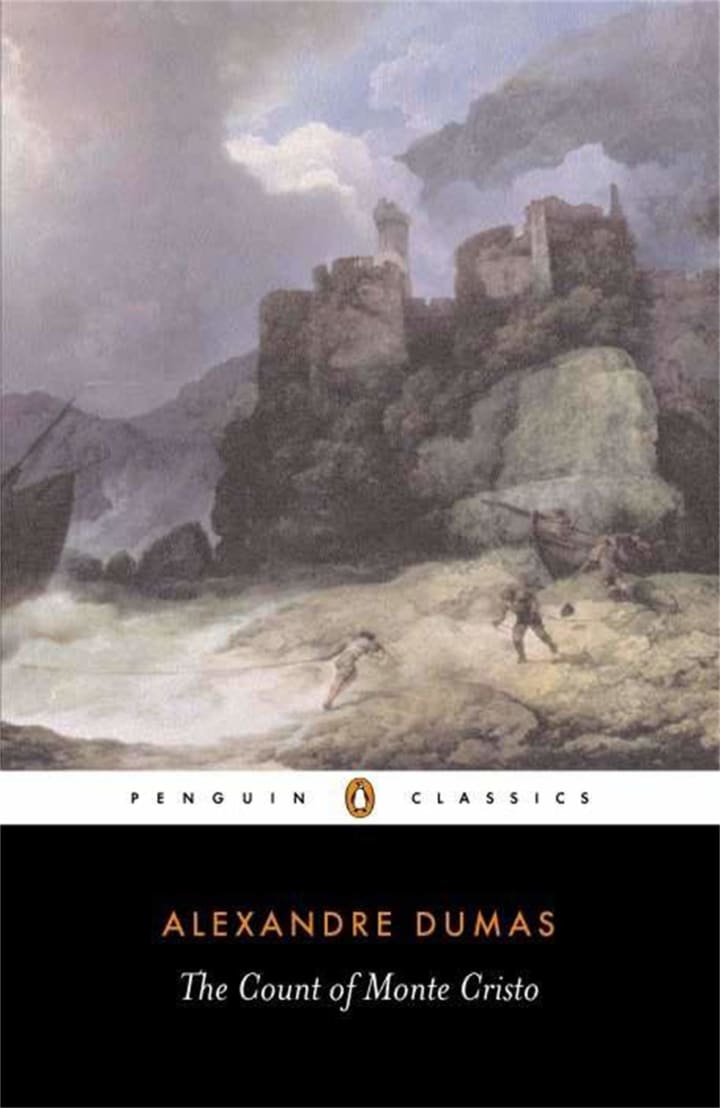
This is a re-read for me and to be honest, I haven't read this book since I was fourteen. I read this book because I am to participate in a read-along in August and well, I remember why fourteen-year-old me loved it so much. It is not just an incredible tale, but it is written beautifully. The existentialism, the part where he's in prison and throwing the food back out, wishing to die, the passion, the love, the excitement. Now, when I was younger I had a big "Three Musketeers" thing going on. And this, Alexander Dumas, is another one of your magnum opus texts.
733. The Dead Secret by Wilkie Collins

Wilkie Collins is great at writing sensationalism and the gothic drama of the Victorian Era but I have to say that this novel goes above and beyond. I have never overly enjoyed Collins' books but this fallen woman and fallen daughter novel takes the idea of Victorian Aristocratic Secrecy and makes it into an entirely new genre of its own. It is absolutely brilliant and I loved pretty much everything about it. You can tell it was paving the way for "The Woman in White".
734. The History of Alexander by Quintus Curtius Rufus
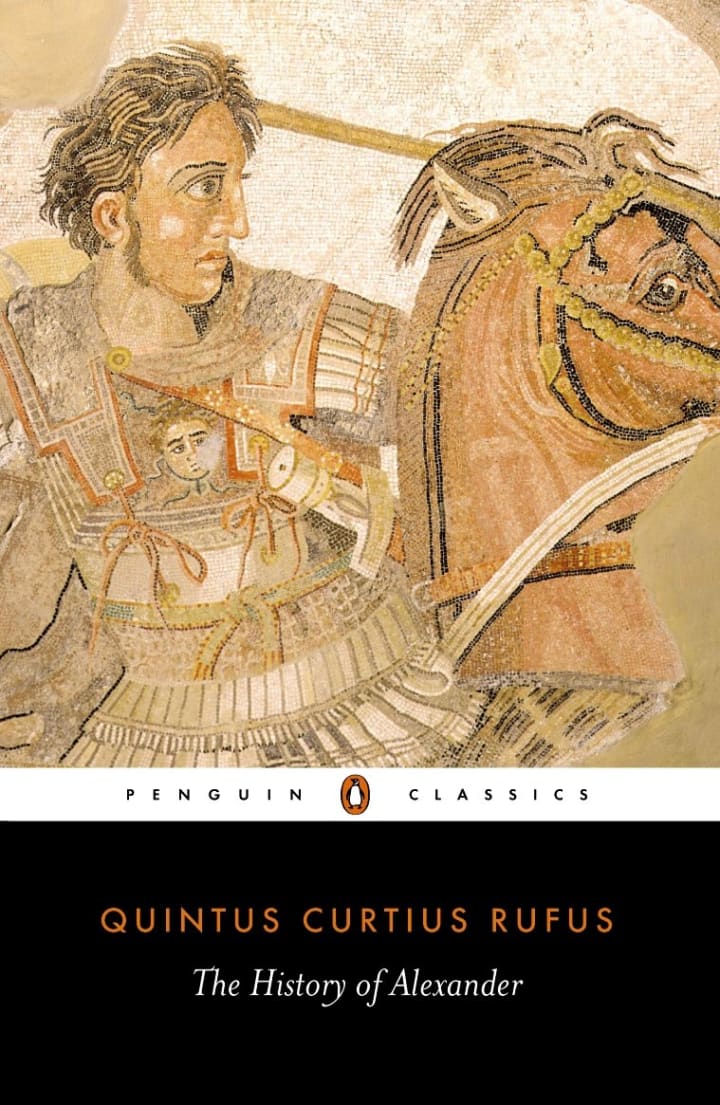
Now, I love books about Alexander the Great, as we all already know. But I have to say that I enjoyed Plutarch's a little bit more than this one. I felt like Rufus' text wasn't telling me anything I didn't already know and because of that I felt a bit disconnected from the story. It wasn't giving the reasons for the changing nature of the army through Alexander's character but rather, spent more time discussing the overthrows of Thebes and Persia. Though I enjoyed it, it did not teach me anything new about Alexander that I didn't already know before.
735. Oedipus Rex by Sophocles
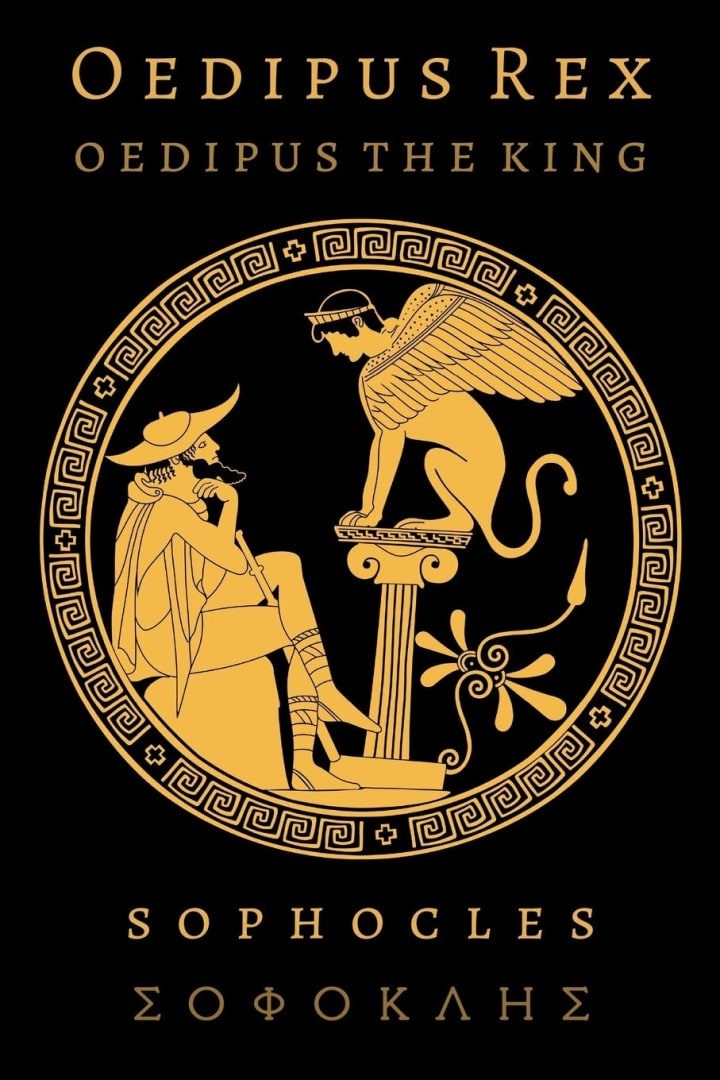
A re-read for an article I was writing on the text. I remember reading this when I was 16 or 17 and being grossed out to the point of no return. But with books about the text coming out that I needed to read later on, this book was an absolute must as it is seen as the epitome of the Ancient Greek Tragedy. It is a brilliantly written story about an ironic and earth-shattering tale. Oedipus and Jocasta, their children and the story of Thebes told in tales of blood, death and fate.
736. The Life of Oscar Wilde by Hesketh Pearson
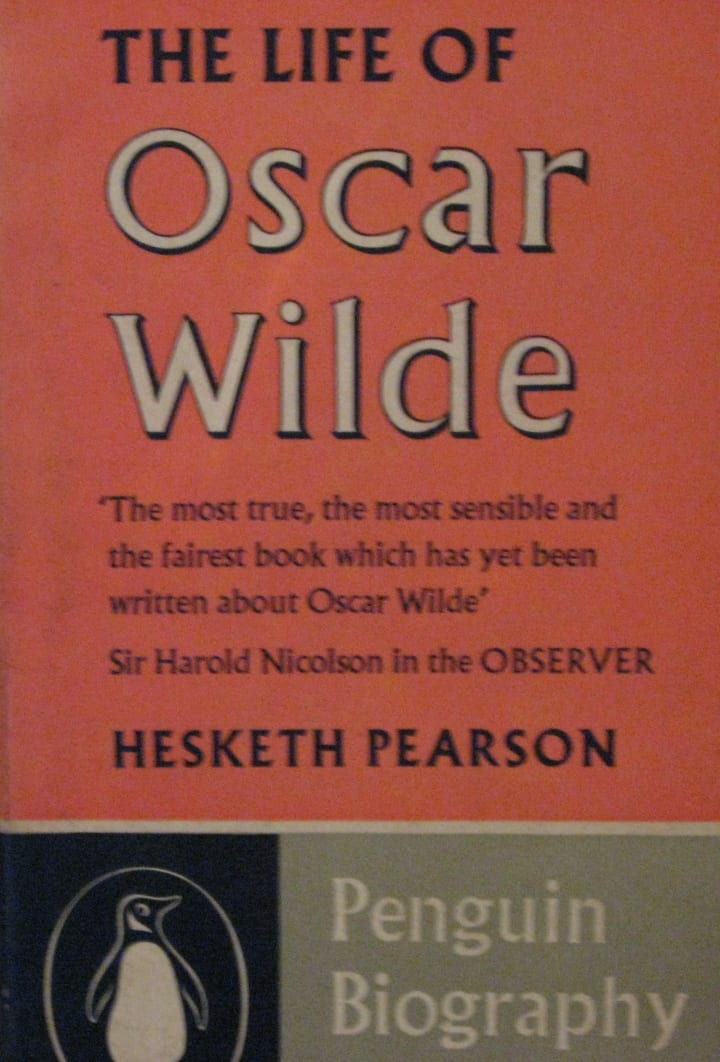
I found this book really short for the life of Oscar Wilde. I have read many many books on Oscar Wilde to the point that I could probably write a biography myself. It is not the worst one I've read but definitely not the best. I can say that there were a number of things that were often shortened or left out - however, the writing was entertaining and I think Oscar Wilde would've approved of its light and witty nature.
737. On Life and Death by Cicero
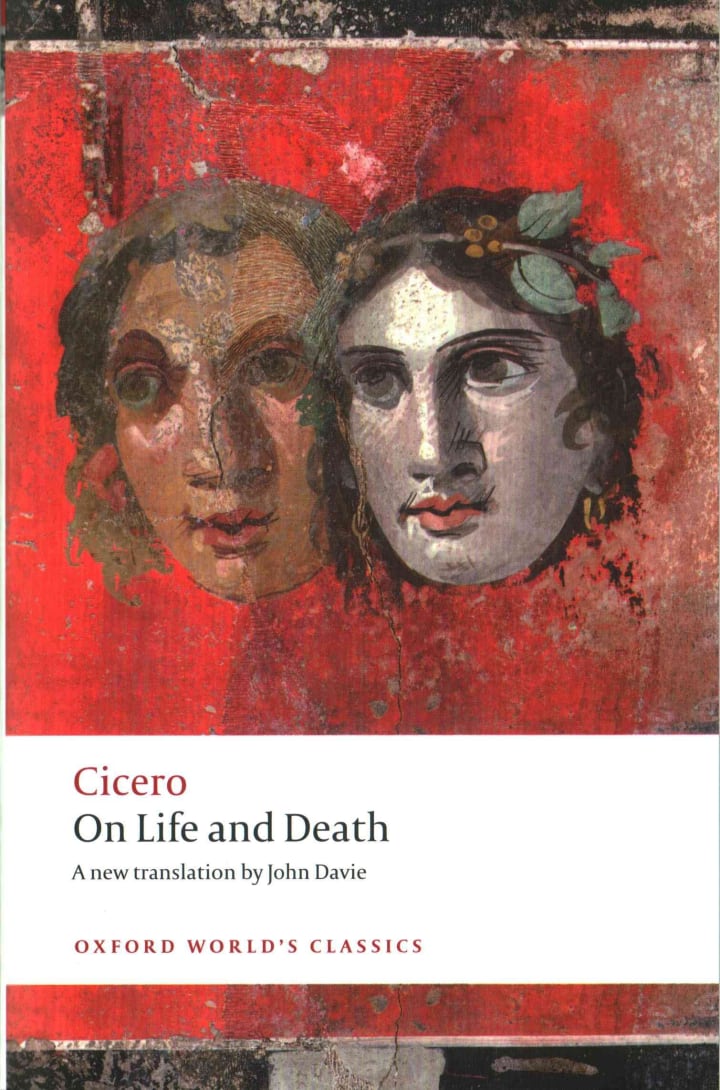
There's nothing more that I love in Latin Literature than snuggling up to some Cicero. This book is told in three parts as dialogues to various friends after Cicero's strange exile. It deals with life and death (obviously) but it also deals with the existential, the inevitability that one day, we will all die and how to accept that and its consequences. Cicero is amazing with words and from this text I can honestly see how deeply he understands these issues of the world that are outside of the courtroom.
738. On the Shortness of Life by Seneca

Seneca the Younger is a great stoic philosopher and when it comes to writing about how 'life is short' and 'art is long' - there is no man better to write about the acceptance of this inevitable death than the father of Stoicism. The writings is complete with amazing anecdotes of the man's own life blended with the courageous speech you so commonly associate with rhetoric in the classical era.
739. The Devil in the Flesh by Raymond Radiguet
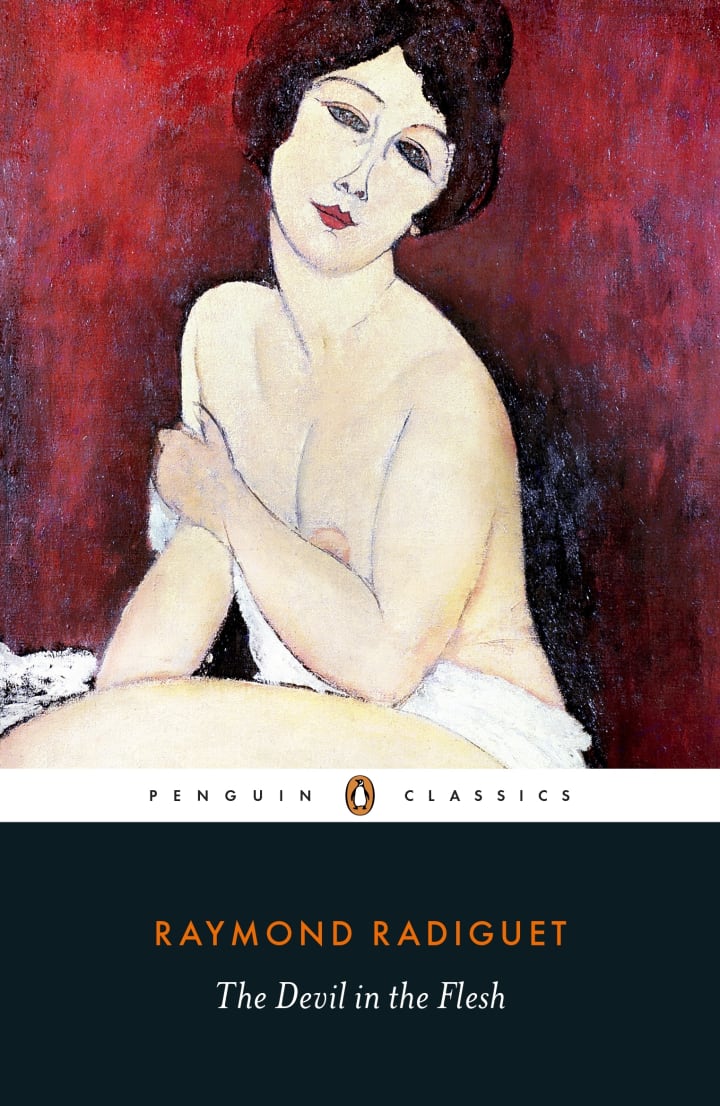
This book is basically a reverse version of Lolita by Vladimir Nabokov. It is about a young boy, beginning at the age of twelve and all the way through to sixteen when he falls in love with a middle aged woman. Mystical as she is, it is kind of disgusting that she's leading on a sixteen year old boy. The boy himself is socially inept and kind of a creep - but the woman creeped me out even more.
740. Selected Poetry by Alexander Pope
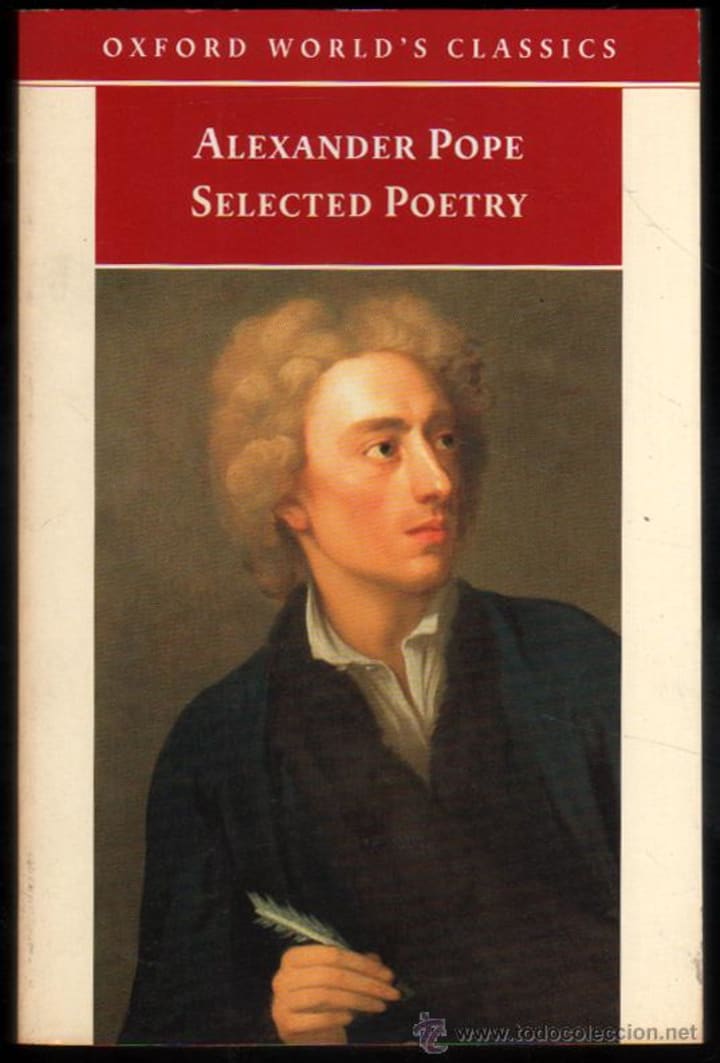
When it comes to poetry, you can't really talk about it without talking about Alexander Pope. He's a mystic and a reasonable man with a brilliant way with words - his "The Rape of the Lock" poem has since become one of the most recognised and studied poems in European history. He is pretty much the epitome of eighteenth-century writing.
About the Creator
Annie Kapur
200K+ Reads on Vocal.
English Lecturer
🎓Literature & Writing (B.A)
🎓Film & Writing (M.A)
🎓Secondary English Education (PgDipEd) (QTS)
📍Birmingham, UK


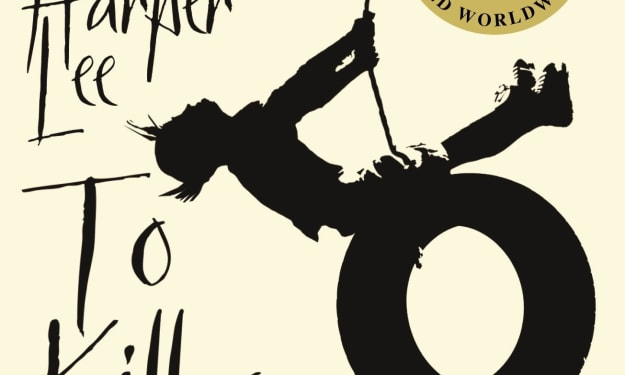



Comments
There are no comments for this story
Be the first to respond and start the conversation.